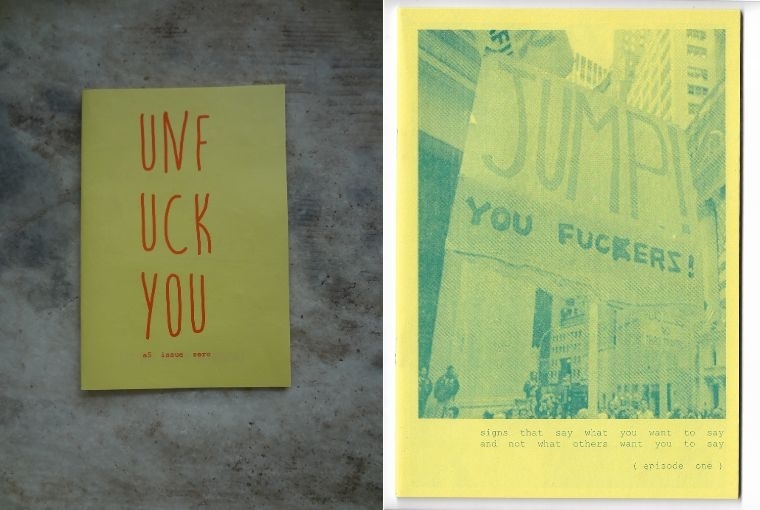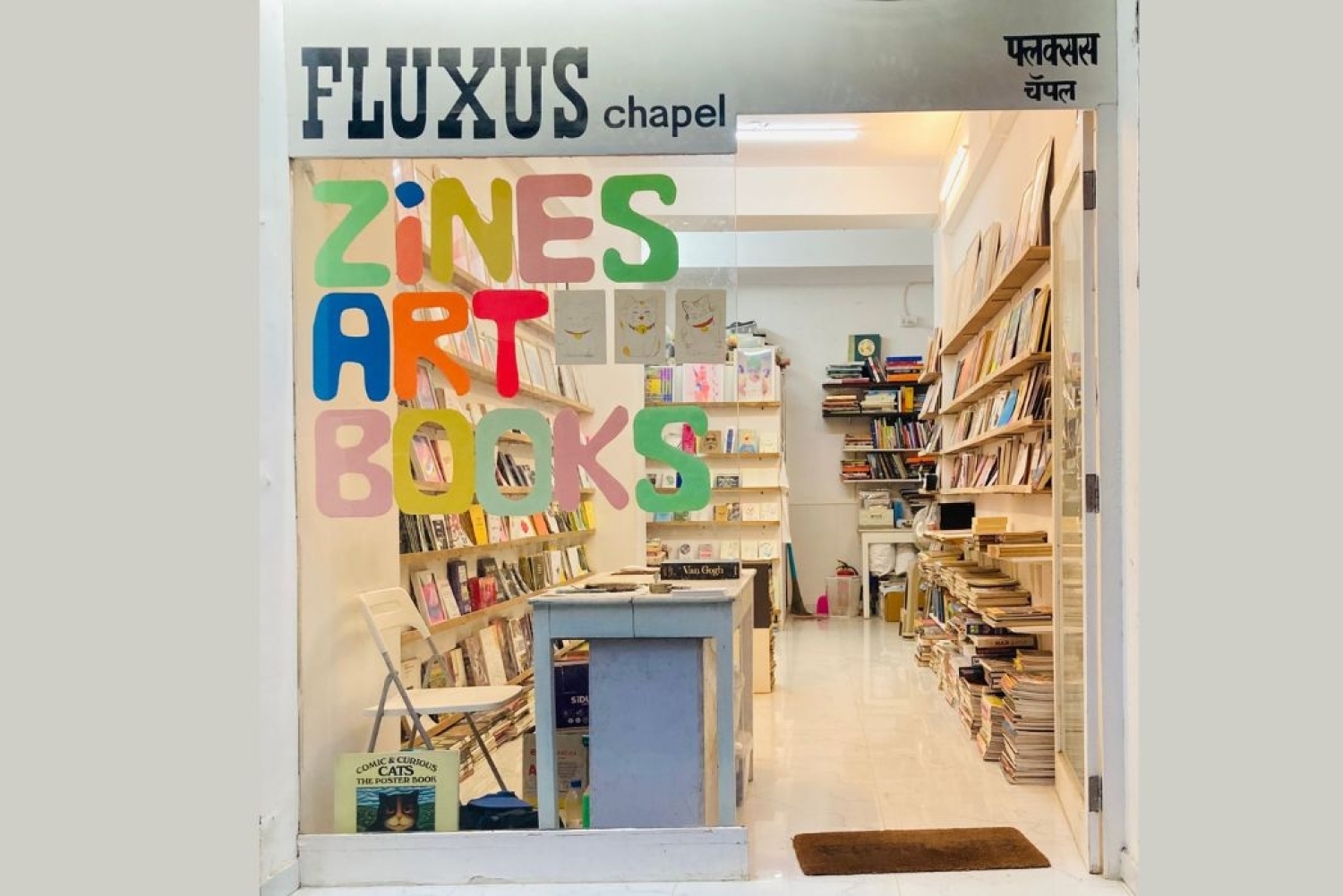

Fluxus Chapel sits nestled in a small lane of Bandra, surrounded by the murals and street art Ranwar is known for. Behind a glass wall, decorated with paper letters reading 'Zines,' 'Art,' and 'Books,' and next to an open door, sits the desk of Himanshu S., owner of Fluxus and a zine artist himself of nearly 25 years. With a passion for zine making and the goal of creating a quiet space for artists to create and consume art, untainted by commercialization, Himanshu created Fluxus, home to hundreds of zines by artists all over India and around the world, as well as a collection of new and old magazines and books. Although structured as a storefront, more often than not, it functions as a gallery of sorts, where people can come and go as they please, simply to view and enjoy art without the pressure of being in an exclusive gallery space, but rather in a welcoming and open zine and bookstore.
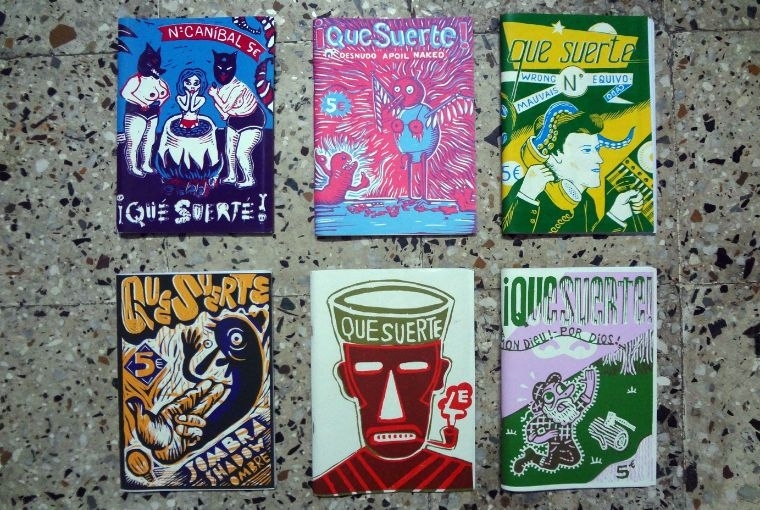
With his existing interest in zine making, Himanshu wanted a space to showcase zines and other print media outside of the world of art galleries and exhibitions. He tried a variety of methods to display work, from street selling and pop-ups to even running a library from SRA buildings. Finally, he decided to embrace a storefront-style space, while still letting it function as an art gallery. Wanting to make art more accessible, he believed the storefront would make the idea of viewing art less intimidating for the uninitiated, “because it's a shop format, so there's no awkwardness of entering an art space. People just walk in if it’s a shop, and then they suddenly realize there's content which is more extremely personal and intimate.”
While zines and other media are available for purchase, the goal of Fluxus was never to sell the most art, but rather to allow patrons to experience art and feel connected to the pieces present, as well as get inspired themselves. Through Fluxus, Himanshu stands by his ideology that everyone is, in some respect, an artist, explaining that 'as a society we've tricked ourselves to kind of believe that only a certain bunch of people are artists and designers and the rest of them are viewers or spectators or, if they have money in their pocket, they can buy and collect and put it matching to their sofas and house.' Through the works at Fluxus, visitors have found inspiration not only to create zines and print media, but also to revisit other passions in life previously abandoned, or even to finally start something new that they have held back from starting. The space tends to remind people of forgotten passions, inspiring them to once again do the things that bring them joy.
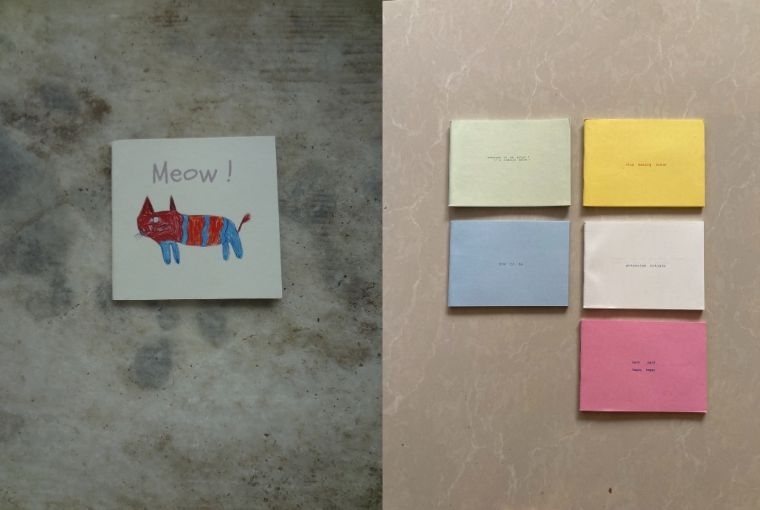
The space also functions as an escape from the hustle and bustle of the city. The decision to place Fluxus in the heart of Bandra was a conscious one, in order to create a little pocket of comfort in the middle of the chaos of city life. Himanshu calls Fluxus his ‘hiding place’ as well, where he can meet people of a similar temperament, with whom he can have meaningful conversations. ‘A lot of people who visit the space are quieter and nicer. So it's kind of like finding our kind of people. That also helps to be able to look at things together. Some voices are the opposite of what I want to say or in the way that I want to say things. But it's fun to have all of it in the same space.’ In a world where digital communication has pushed people further and further into their echo chambers, Fluxus allows room for open discussions, with different ideas and voices all coexisting on the same shelves and in the same room.
Maintaining a physical space, of course, comes with its challenges. Ensuring that people can freely come and look at art means removing the pressure to buy something when you enter a store, which, in turn, means less profit. While Fluxus does make money from the art that is sold, that’s not the main source of its funding. 'A lot of my friends and family always kind of tease me or say that I've planned it in a way that it has to fail. But that's not the plan.' The way Himanshu sees it, if all the artists who are showcased in Fluxus contribute a little to keep it running, it should be able to sustain itself well enough. He explains that organic growth will eventually get them to a point where finances are less of a worry; with 'about 60-70 people, if they exhibit, with that equal little bit of money that they put towards the space’s running cost, it will work.'
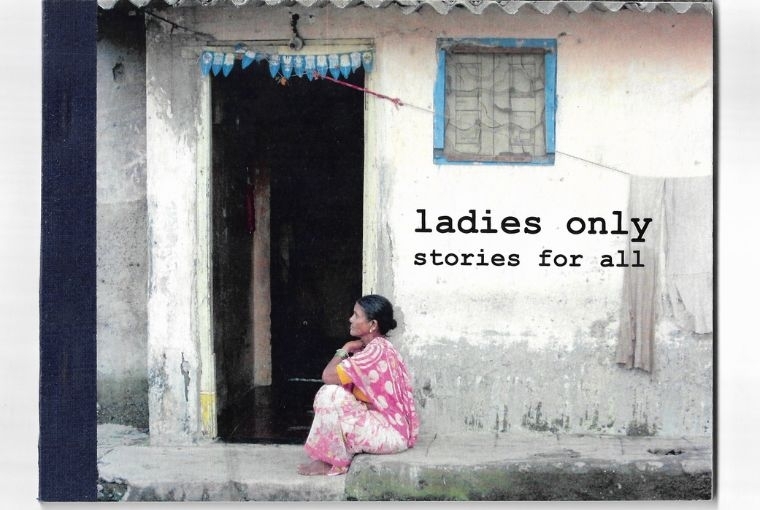
Fluxus is also working on adding more and more zines, books and magazines to their existing vast collection, as well as establishing and expanding a library system, where people can borrow books and magazines. Himanshu also continues to work on making Fluxus a place for people to slow down and truly experience rather than just passively consume. As difficult as it seems in a rat race world, he believes that 'even within the mess, we will figure things out. Even within the rush, we will find our calm. It's exciting like that. We will be able to slow down our lives within that rush. It's something that's a task, but it's slowly doable. And if more of us do it, it becomes easier.'
Ultimately, all that Fluxus and Himanshu want is for people to visit the space and let the magic unfold. 'Just come and visit. Like, see what is there. The space keeps shuffling quite often. There are new things getting added, so if you come once, you will find something; the next time you come, you will find different things. You just need to come and see.'
Words Ayushie Shahane
Date 15.05.2025
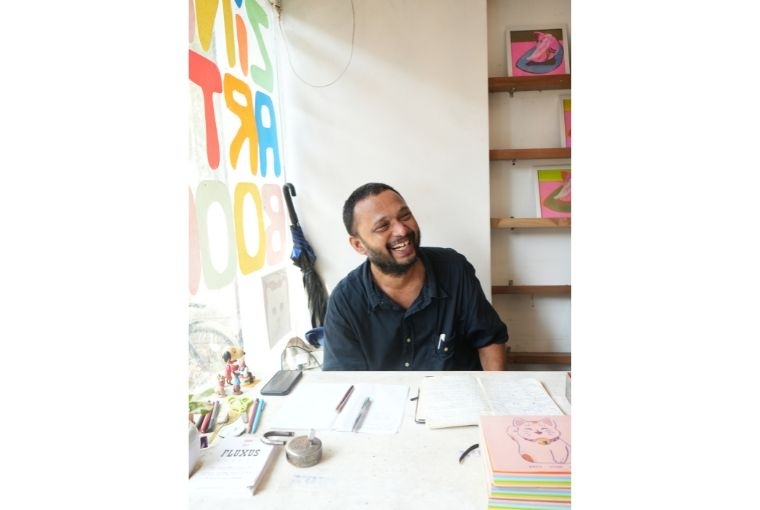
Founder, Himanshu S.
Photography Ayushie Shahane
